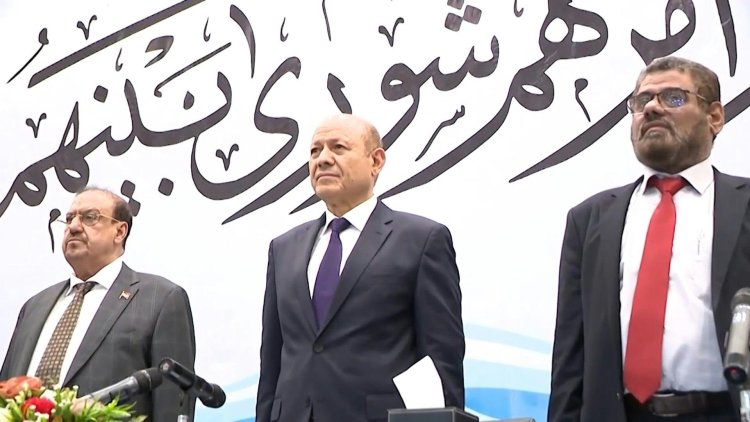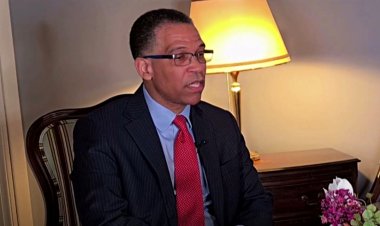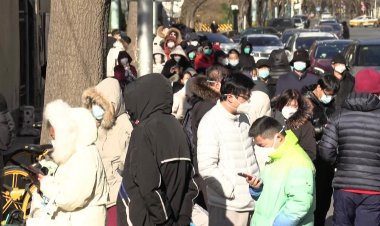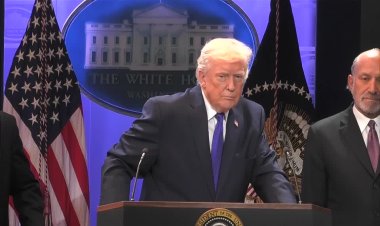New leaders take office as hope glimmers for war-torn Yemen

Yemen's new leaders took a ceremonial oath of office under tight security on Tuesday, completing a major shake-up aimed at ending seven years of war with the Iran-backed Houthi rebels.
The newly formed, eight-man leadership council performed a largely symbolic swearing-in in Aden witnessed by members of a parliament elected in 2003, as hundreds of soldiers patrolled the southern city, a government official said.
Ex-president Abedrabbo Mansour Hadi, who fled to Saudi Arabia when the war started in 2015, handed over his "full powers" to the council in a televised address on April 7.
The ceremony was not announced in advance and was held at an undisclosed location for security reasons. In December 2020, about 20 people died in an attack on Aden airport as government officials arrived.
The US special envoy for Yemen, Tim Lenderking, also attended, according to Yemen's official news agency.
Hadi's surprise announcement came on the last day of talks in Riyadh involving Yemen's government, the coalition and international envoys. The Huthis refused to attend those talks because they were on "enemy" soil.
The Wall Street Journal reported on Sunday that Saudi Arabia pushed the former president to step down, confining him to his home and restricting his communications.
The new leadership council, led by former Hadi adviser Rashad al-Alimi, is tasked with "negotiating with the Huthis for a permanent ceasefire", Hadi said in his announcement.
Its members represent widely diverging views and include Aidarous Al-Zoubeidi, whose secessionist Southern Transitional Council wants to split Yemen back into two countries -- north and south, as was the case until 1990.
Yemen's conflict has killed more than 150,000 people and over 200,000 have died indirectly, including through hunger, unsafe water and disease, UN agencies estimate. Eighty percent of the 30 million population is dependent on aid.
Of the 301 lawmakers elected in 2003, 143 are pro-government, 90 support the Huthis, 23 are unaffiliated and 45 have died, members of the parliament said. It was not known how many attended Tuesday's ceremony.















